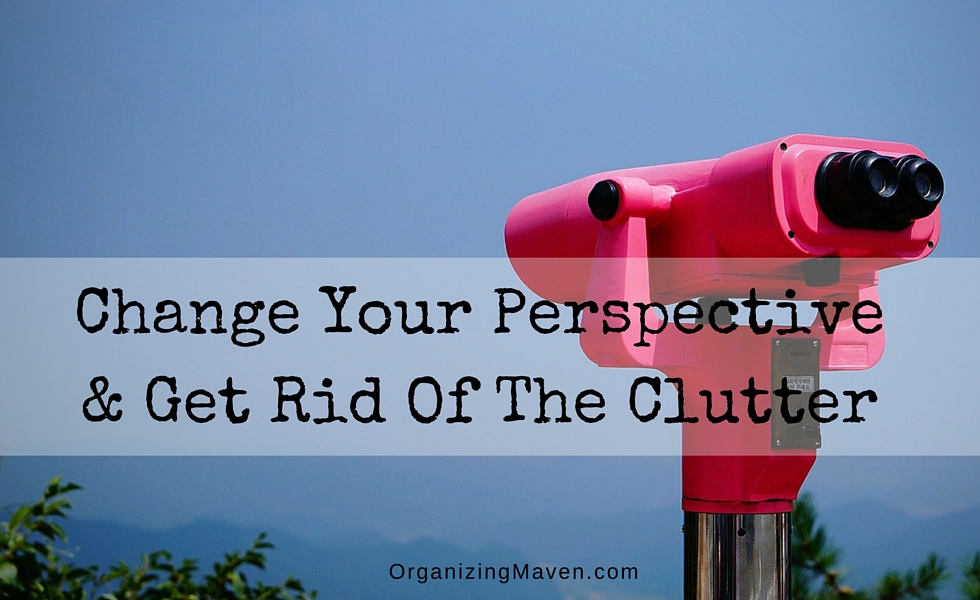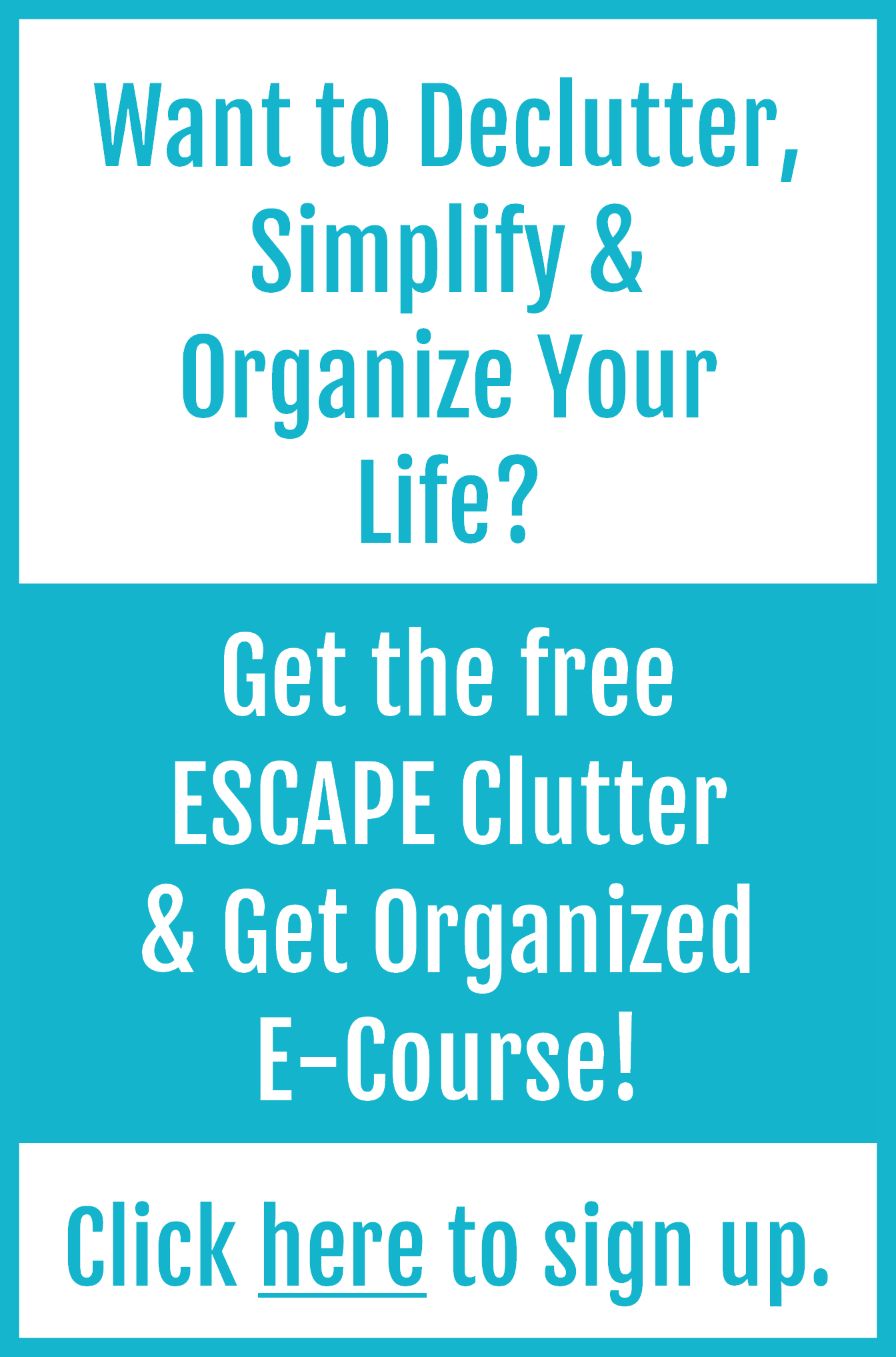Clutter – ugh! It tends to accumulate with the greatest of ease. But eradicating it is an entirely different story. Getting rid of clutter can seem like a monumental task. What gives? We’ll let bunches of stuff into our spaces without giving it much thought, so one would think we could let go of stuff without over-thinking the decision to say goodbye, right? It would seem that letting go should be easy. And it would be if emotion didn’t play a role. Those damned emotions, they get us every time! Damned or not, it’s a fact, emotions really do complicate the clutter clearing process.
Guilt is the emotion that tops the list. I feel guilty getting rid of it. As a clutter coach, that’s the reason I hear most often for hanging on to the things that no longer serve a purpose. The cause of the guilt runs the gamut. Everything from ‘I paid good money for it’ to ‘Aunt Emma would never forgive me if I got rid of that’. Never mind that the item ‘good money’ was paid for is never, ever used. Never mind that Aunt Emma hasn’t been around for the last twenty years. In the end it’s emotion, not rational thought that rules the decision making process.
The big question then is this: How do you overcome the power of emotion, specifically guilt, when it comes to decluttering? I say let’s not try to overcome it, instead let’s use it to our advantage. It’s not difficult to do, we just need to gently redirect our focus. Think about a gem, it has many facets, right? And so too does any problem. If the way you are thinking about an issue isn’t helping you find a solution, adjust the way you’re viewing it. Look at it from a different angle.
Let’s suppose you do have clutter, and let’s also suppose, for whatever reason, you are feeling guilty about letting go of the objects you no longer use. How can you refocus the guilt so it serves you well? I’m not crazy talking , you can actually take a bad feeling and turn it into a good feeling.
But before I explain what I mean, I feel I need to interject a caveat here – I have great ambivalence about talking about guilt in this way – I think guilt should be reserved for serious situations – those where you have done something unjust and feeling bad is legitimate – but I also understand guilt is very sneaky, so it’s really easy to succumb to feeling guilty in situations that aren’t worthy of it. OK, I’m stepping off my soapbox and getting on with explaining how we can turn guilt to our advantage.
Contemplate this: What if someone had something you needed. They could easily give it or sell it to you, but they choose not to. They never use it themselves, they don’t need it and they don’t love it. They just hold onto it, never giving anyone else an opportunity to enjoy it. What would you think of a person like this? Personally, I would think they were very poor stewards of their possessions.
Cold, hard truth – when we hold onto something that we don’t need, don’t use, or don’t love, we are withholding that object from someone who does need it, could use it, and/or would love it. And that’s not good stewardship. Conversely, when we release the things we no longer have use for, we are doing good, we are improving lives – our life and the lives of those who will benefit from our giving. Can you see how refocusing can turn guilt in a motivator to do good? Instead of feeling guilty for letting go of stuff, you are applying that guilty feeling to not letting go. Now you can use letting go is an opportunity to be generous and kind.
If you are unsure this can work for you, try it, there’s nothing to lose – except loads of clutter!
If you are ready to jump start the clutter clearing process, be sure to grab your free decluttering and organizing tips here.


